MercoPress. South Atlantic News Agency
Tag: Unemployment
-
Thursday, June 11th 2020 - 13:17 UTC
Fed anticipates near zero rate through 2022 and will keep buying bonds
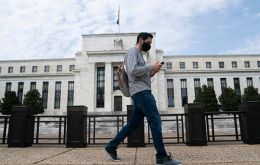
The United States Federal Reserve says it will keep buying bonds to maintain low borrowing rates and support the U.S. economy in the midst of a recession. And it says nearly all the Fed's policymakers foresee no rate hike through 2022.
-
Friday, June 5th 2020 - 09:45 UTC
Covid-19 human toll: US unemployment expected to reach 20% in May
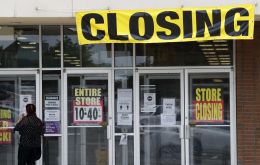
The U.S. unemployment rate likely shot up to almost 20% in May, a new post World War Two record, with millions more losing their jobs, exposing the horrific human toll from the COVID-19 crisis.
-
Thursday, May 28th 2020 - 08:40 UTC
The Americas will bear the brunt of the pandemic job losses, ILO report
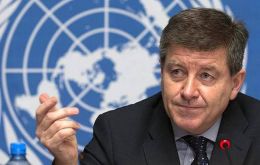
The Americas will bear the brunt of an estimated 305 million job losses that the coronavirus pandemic will cause worldwide between April and June, the International Labour Organization (ILO) said on Wednesday.
-
Friday, May 22nd 2020 - 07:29 UTC
Job losses in the US totaled 38,6 million since the lockdown; 2,43 million in the last week

Job losses in the United States are slowing but totaled an unheard-of 38.6 million since the coronavirus pandemic lockdowns began, while officials debate what additional steps will be needed to rescue the beleaguered economy.
-
Wednesday, May 13th 2020 - 07:37 UTC
Fed says US households will need more fiscal support and forecasts 20% unemployment
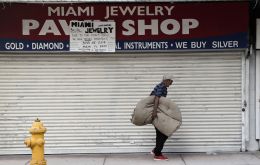
United States businesses and households are going to need more fiscal support to get through what will likely be a longer period of recovery from the coronavirus shutdown than initially expected, Federal Reserve policymakers said on Tuesday.
-
Monday, May 11th 2020 - 07:48 UTC
Unemployment will “get worse before they get better”, says Mnuchin

The staggering US unemployment rate reported by the government on Friday amid coronavirus lockdowns may get even worse, Treasury Secretary Steven Mnuchin said on Sunday.
-
Friday, May 1st 2020 - 08:12 UTC
International Workers Day message from ILO Director General

By Guy Ryder (*) – In the time of coronavirus, the big challenge for most of us is how to protect ourselves and our families from the virus and how to hold on to our jobs. For policymakers, that translates into beating the pandemic without doing irreversible damage to the economy in the process.
-
Thursday, April 30th 2020 - 07:28 UTC
Fed admits public health situation will “weigh heavily on economic activity, jobs and inflation”

The Federal Reserve on Wednesday left interest rates near zero and repeated a vow to do what it takes to shore up the U.S. economy amid an ongoing coronavirus pandemic that will not only “weigh heavily” on the near-term outlook but poses “considerable risks” for the medium term as well.
-
Wednesday, April 22nd 2020 - 08:35 UTC
Immigration green card seekers face 60 days suspension, “to protect US jobs”

President Donald Trump said on Tuesday he was suspending immigration for green-card seekers for 60 days, arguing the controversial move would protect US jobs.
-
Saturday, April 4th 2020 - 08:18 UTC
Record unemployment filing in US in two weeks; “economy has slipped into recession”
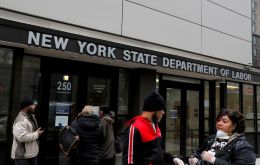
The number of Americans filing claims for unemployment benefits shot to a record high of more than 6 million last week as more jurisdictions enforced stay-at-home measures to curb the coronavirus pandemic, which economists say has pushed the economy into recession.
